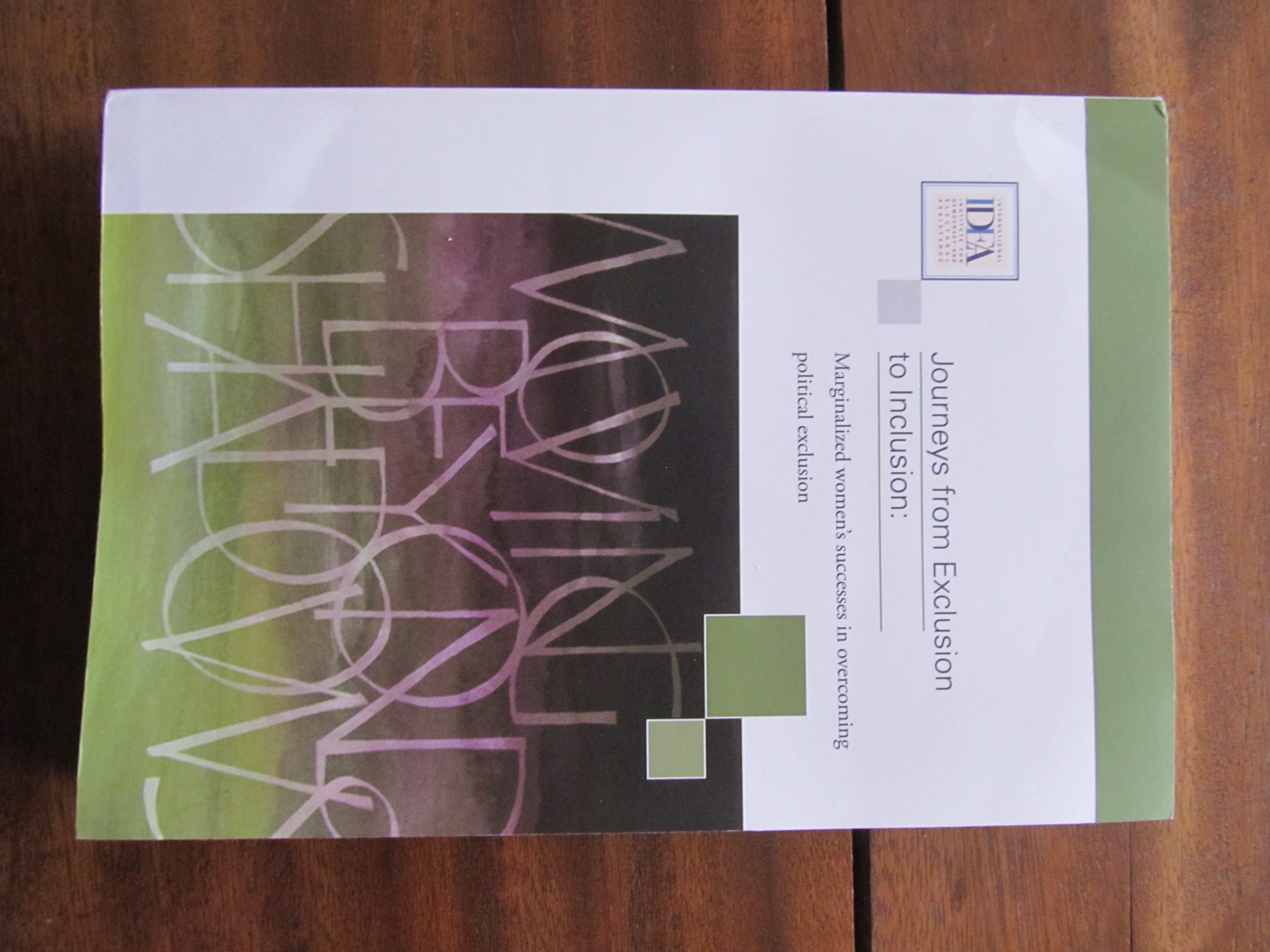IDF Recognized For Leadership On Political Exclusion Issues of Marginalized Women in NW Cameroon

Making Decentralization Meaningful For Marginalized Communities:
Lessons From the Integrated Development Foundation in Cameroon
Reviewed by Allan Sorflaten, BSc. MSc.
The Integrated Development Foundation (IDF) has excellent qualifications gained from years of experience at implementing practical and effective social change on behalf of underprivileged, marginalized persons in Cameroon. Among other recognized accomplishments, the IDF has shown leadership on various gender issues by promoting the efforts of marginalized women to overcome political exclusion in the city of Bamenda, capital of the North West Region. IDF activities in this area are recognized by the International Institute for Democracy and Electoral Assistance (IDEA) of Stockholm, Sweden and are published in their recent book ‘JOURNEYS FROM EXCLUSION TO INCLUSION: Marginalized Women’s Successes In Overcoming Political Exclusion’ (IDEA Stromsburg, Stockholm 2013). IDEA is an intergovernmental organization dedicated to the support of sustainable democracy worldwide by using a variety of knowledge based initiatives. The book itself describes several case study experiences by a number of organizations including IDF as they attempt to redress female exclusion from the political process in a number of developing nations. Madame Oussematou is Executive Director of the Integrated Development Foundation.
Some of IDF’s accomplishments in this regard are described in Part IV/Chapter 10: ‘Making Decentralization Meaningful for Marginalized Communities: Lessons From Integrated Development Foundation in Cameroon’ by Julius Lambi and Oussematou Dameni (pp. 326 – 355).
Abstract
Over the past three decades, the implementation of administrative decentralization in Cameroon has been slow and timid. Moreover, due to the absence of a practical model for engaging citizens in decision-making, decentralization reforms tend to reproduce, at the local level, the same accountability, transparency and responsiveness deficits criticized in centralized management. Donors and other development practitioners engaged in the decentralization process continue to grapple with the question of how the voices of community groups can be meaningfully included in local decision making, project implementation and oversight without rendering these processes cumbersome and ineffective. This case study describes a pilot model for citizen participation implemented by a non-governmental organization, the Integrated Development Foundation (IDF), in two neighbourhoods of Bamenda, the capital of the North West Region of Cameroon. The pilot model for participatory development effectively promoted the inclusion of marginalized groups, notably women and young people, by mobilizing these stakeholders, among others, into organized quarter development associations (QDAs). The establishment of written partnership agreements between the QDAs and the municipal councils gave these formerly-marginalized quarter residents a quasi-right to participation, as well as an effective channel for communicating their development priorities to council authorities.
Lambi and Dameni begin their case study by emphasizing that accompanying national legislative empowerment measures at the time were largely illusory and only appeared to succeed because they were accompanied by some very necessary initiatives undertaken at the district and local levels. These latter initiatives disempowered the non-elected delegates who formerly were appointed by government to administer local government matters. Though this itself represented great progress in the decentralization process, one very important dimension still was lacking: the active inclusion of local populations – including historically marginalized groups – in the planning, implementation and monitoring of development projects.
Lambi and Dameni then examine the work of IDF in this area, particularly within the context of long standing intra-community tensions between men and women and between groups formed on the basis of age, ethnicity and religion. IDF’s work involved establishing a system of participation modelled on past structures and processes rather than introducing new ones and enabled all stakeholder groups (including women and young people) to contribute to development projects’ design and implementation. In addition, IDF activities strengthened stakeholder group skills, enabling them to handle their administrative and monitoring responsibilities in participatory neighbourhood structures known as Quarter Development Associations (QDAs). The programme also built cooperative relationships between the QDAs, local governments and other state actors responsible for neighbourhood development issues.
Some of the inclusion steps that IDF and its partners undertook were critical in facilitating the participation of previously excluded groups. These included the means IDF used to ensure people were informed about community meetings, engaging in interactive outreach approaches such as establishing question and answer focal points in common gathering places, hiring community mobilizers using community- mounted loudspeakers and using home visits and word of mouth as key communication methods.
Throughout the process, IDF specifically targeted marginalized groups, including women and young people, thereby ensuring that they defined their own needs and solutions to them. In addition, IDF communicated through the leaders of various cultural and religious groups to announce projects, motivate group members to participate and, ultimately, build bridges between groups that had in the past been adversarial to one another. The IDF went beyond community meetings to identify needs, issues and their respective solutions. Another IDF strategy that helped facilitate inclusion was to reinforce links with poverty alleviation and land reform measures.
Lambi and Dameni observe that many inclusion programmes rely on large scale external resourcing rather than less expensive approaches built on local resourcing that will, by definition, be seen as more sustainable. To its credit, the IDF program was built on existing local structures and the work implemented through local CBOs rather than by superimposing new structures on existing initiatives.
THE ENTIRE REPORT IS AVAILABLE FROM
THE INTERNATIONAL INSTITUTE FOR DEMOCRACY AND ELECTORAL ASSISTANCE (IDEA)
Stromsborg , SE-103 34 Stockholm, Sweden
Tel: +46 8 698 37 00, fax: +46 8 20 24 22
E-mail: info@idea.int , Website: http://www.idea.int